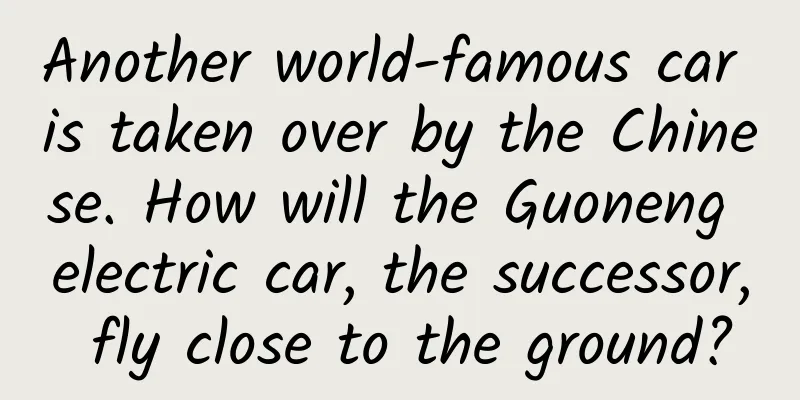Even Huawei is in trouble. It is really difficult for domestic mobile phones to "go global".

|
Recently, a piece of news has been spreading like wildfire: Huawei received a "sale ban" from the Patent Court of the England and Wales High Court in the United Kingdom. It is said that unless Huawei can pay the patent fee, Huawei's mobile phones will be removed from the shelves. Of course, Huawei later refuted the rumor: the ban has no impact on the business operations of Huawei's mobile phones, it is only a paper ban. Huawei has now filed an appeal, and the sales ban will also cease to take effect during this period. Huawei's sales in the UK and even the world are not affected by the judgment. The removal of mobile phones and other products in the UK is a misunderstanding and has not been formally implemented. It is reported that the patent dispute Huawei encountered in the UK this time has started since March 2014. The company that is in court with Huawei is called "Unwired Planet International" (hereinafter referred to as "UPI" company). The company was formerly the mobile software company Openwave Systems, but the company transformed into a "licensing and patent protection company" in May 2012. For this kind of company, the industry has a more direct and vivid term-"patent trolls". The patent crisis Huawei encountered this time came from the more than 2,000 patents that UPI acquired from Ericsson in 2013, including 753 2G/3G/4G related patents. From October 2015 to July 2016, the six patents related to this case were divided into five groups for technical testing and comparison. The result of the ruling was that Huawei infringed on two patents purchased by UPI from Ericsson. However, in April this year, the British court ruled that UPI's asking price was too high and gave what they considered to be a reasonable licensing fee. Huawei did not appeal again, but UPI thought the fee was not high enough, so it appealed again. The High Court of England and Wales made a ruling last week: Huawei needs to pay 2.9 million pounds in compensation. Regarding global patent licensing, Huawei is allowed to appeal, and regarding hybrid global benchmarks, UPI is allowed to appeal. So the industry has the news at the beginning of this article. In fact, from a broader perspective, this lawsuit is not only a showdown between Huawei and patent trolls, but also a microcosm of the difficulties faced by domestic mobile phone manufacturers in going overseas. Domestic brands are struggling to go global. Every time we take stock of the current status of the smartphone market, everyone will say: "Domestic mobile phones are rising strongly." The premise of this sentence is that among the top five manufacturers in the world, three are from mainland China; among the top ten manufacturers in terms of shipments, seven are from mainland China. The performance of domestic mobile phone manufacturers is dazzling. But on the other hand, even if domestic mobile phone manufacturers have achieved such a large scale, these domestic brands with huge shipments are still difficult for ordinary consumers to feel that they are "international brands." The reason is that these brands can achieve shipments at the forefront of the world in large part because of their strong performance in the Chinese domestic market, which is almost sweeping, but in developed countries such as Europe and the United States, Chinese brands still find it difficult to gain a real foothold. Xiaomi Senior Vice President Wang Xiang said in an interview that they are not yet ready to sell mobile phones in the US market. Previously, Xiaomi's then global vice president Hugo Barra stated that Xiaomi mobile phones may enter the US market this year. The inconsistency between the two is also interpreted as the frustration of "Xiaomi wants to enter the US but cannot". In fact, Xiaomi has already laid out its plans for the US market. In May 2015, Xiaomi's official Twitter announced that the US online store was officially launched. US users can purchase products such as Xiaomi bracelets, Xiaomi mobile power banks, and Xiaomi headphones in the online store. However, it was not until October 2016 that Xiaomi's first "core product", the 4K TV set-top box Mi Box running Android TV 6.0, was officially launched. However, the real core product of the Xiaomi ecosystem, the Xiaomi mobile phone, has never shown signs of being launched in the United States. At CES at the beginning of the year, Xiaomi couldn't wait to show its flagship white version of Xiaomi MIX at its booth, which was actually the first launch of the white version of MIX. This is enough to show Xiaomi's emphasis on and desire for the US market. Xiaomi is not the only company that desires the US market but cannot get it. In June 2016, the US Department of Commerce required Huawei to submit shipment information on the export or re-export of US technology to Cuba, Iran, North Korea, Sudan and Syria. On the other hand, many of Huawei's recent flagships have been unveiled at exhibitions in the United States. According to ZTE's 2016 full-year performance report, if calculated in the normal way, the net profit attributable to the listed company's common shareholders is 3.83 billion yuan, a year-on-year increase of 19.2%. However, due to ZTE's settlement agreement with relevant departments of the US government and the provision of approximately US$892 million in related losses, the net loss attributable to the company's common shareholders in 2016 was 2.36 billion yuan. Of course, the series of frictions between ZTE and Huawei and relevant departments of the US government when they entered the United States were also related to their large-scale communication equipment. As for OPPO and vivo, which have been leading the Chinese market since last year, there is no news about their large-scale entry into the United States. Patents are a big problem . The primary reason is naturally patent barriers. For these domestic brands that want to truly go overseas, or even enter Europe and the United States, the word "patent" is definitely a hurdle that cannot be avoided. Some of the brands mentioned above must have experienced the severity of patent litigation when they entered India. The patent litigation in the US market is even more stringent than that in India. A typical example is HTC, which once had a glorious history in the United States, but was banned from sale due to patent disputes. In the end, HTC fell into a slump in the US market. For domestic brands that want to really expand and gain a foothold in the European and American markets, HTC is a lesson for them. Not to mention that some domestic big brands do not have as many core technology patents as HTC. If they rashly enter the US market, the result can be imagined. It usually takes 3-5 years from patent application to authorization, which is too long for the ever-changing mobile phone market. So a shortcut is for mobile phone manufacturers to directly purchase third-party patents. Xiaomi, which was defeated by Ericsson when entering India, ranked fourth on the list of buyers of US patents in 2016. This actually shows that Xiaomi is stepping up its entry into the United States, but they think the time is far from ripe. On the other hand, operators in the US market are the main channels for various brands to ship goods. Apple and Samsung, which have gained a near-monopoly in the US market, have received support from major operators. This change has taken time for domestic big brands that are proficient in "Internet thinking" or "star effect" to adapt. After all, in the Chinese market, the "China Cool Union" that was thriving when operators played the leading role, now only one is still standing. If you want to sell mobile phones through operator channels, it is very necessary to provide customized models for operators, unless the manufacturer has the right to speak for Apple. And this means that these manufacturers need to spend extra energy to adapt. Taking Xiaomi as an example, Wang Xiang said that Xiaomi's engineering team is very busy at present and does not have enough energy to adapt operator customized models. Xiaomi also has no plans to lay its own channels to sell bare phones, because Xiaomi has established a good relationship with operators. If you rush into it without sufficient preparation, you may lose more than you gain. In fact, in addition to the Southeast Asian and Indian markets where domestic brands have already established a foothold, there are also relatively successful domestic mobile phone brands in the US market, such as "OnePlus". But relatively speaking, the size of OnePlus mobile phones is too small to be considered to be truly established in the US market. So for these domestic brands that want to enter the United States and have not yet officially launched actions, it is more appropriate to describe them as dormant, just as Xiaomi has been vigorously purchasing patents in the United States as mentioned above. When the patents of domestic mobile phone brands can guarantee that they can get a tolerable result even if they encounter patent wars in the United States, domestic big brands may really become international big brands. In any case, some domestic mobile phone brands have entered the "SoC" field with high technical barriers, which may mean that the patent reserves of domestic mobile phone brands have reached a certain level. As a winner of Toutiao's Qingyun Plan and Baijiahao's Bai+ Plan, the 2019 Baidu Digital Author of the Year, the Baijiahao's Most Popular Author in the Technology Field, the 2019 Sogou Technology and Culture Author, and the 2021 Baijiahao Quarterly Influential Creator, he has won many awards, including the 2013 Sohu Best Industry Media Person, the 2015 China New Media Entrepreneurship Competition Beijing Third Place, the 2015 Guangmang Experience Award, the 2015 China New Media Entrepreneurship Competition Finals Third Place, and the 2018 Baidu Dynamic Annual Powerful Celebrity. |
Recommend
Layered operations of Toutiao users’ life cycle!
In user operations , user segmentation is a neces...
Were the Yue people 2,500 years ago "tide-proof architects"? Archaeological excavation of the kingdom of Goujian, King of Yue →
Recently, the "Yue State Archaeology: Shaoxi...
Google is killing off micro SD cards
Like it or not, micro SD cards and Android devices...
Brand Yuanqi Forest Marketing Data Report
When it comes to sugar-free beverages with “0 sug...
Learn these 6 ways to play, and your Douyin account can also bring goods
As Douyin’s ability to sell goods continues to im...
UNEP: Emissions Gap Report 2022
Since the 26th United Nations Climate Change Conf...
Five effective attempts at AI technology in game development
[[165555]] AI, or Artificial Intelligence, is cur...
How long should an App Store app name be? 23 characters or less is best!
Recently, Apple officially sent an email to devel...
Apple releases new iOS 11.3 beta: Manual frequency reduction is here, but will you choose it?
As the most significant version update in iOS 11,...
Does heading the ball in football really affect the brain?
Compiled by: Gong Zixin At a football game Pass, ...
iOS 9: Quickly make your app support spotlight search
[[151508]] iOS9 supports indexing the content in ...
Top 10 H5 ads that dominated the screen in 2017, how many have you played?
2017 is almost over. Do you still remember the H5...
Download the txt version of Cold Reading, download the pdf version of Cold Reading from Baidu Netdisk
Cold Reading Book List Introduction Introduction ...
How effective is paid promotion of mobile apps? With all the chaos going on, who can you trust?
We spend money on promotion for the sake of resul...
WeChat knowledge payment mini program? What are the advantages of the knowledge paid reading store mini program?
With the development and growth of the market eco...









